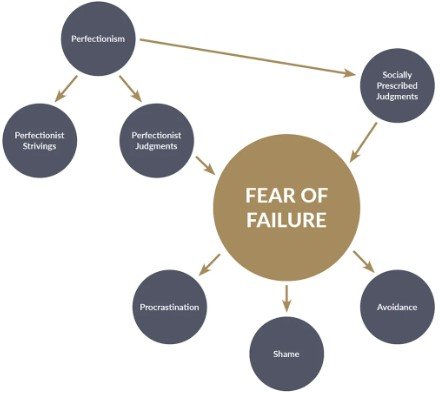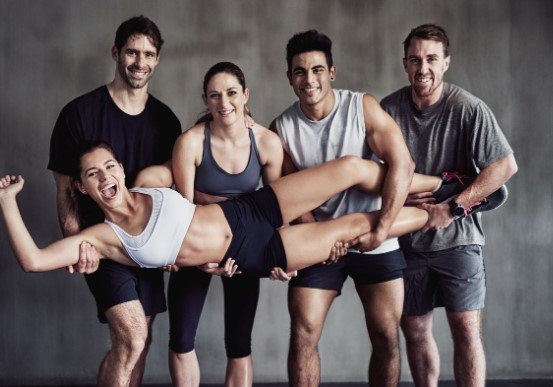3 Psychological Factors That Can Hinder Your Gym Progress
Introduction
Embarking on a fitness journey involves more than just physical effort; it demands mental resilience and a positive mindset. While we often focus on the physical aspects of training, it’s crucial to recognize the profound influence of psychological factors on our progress in the gym. In this exploration, we’ll delve into three key psychological factors that have the potential to impede your gym progress and discuss strategies to overcome them.
1. Negative Self-Talk and Self-Doubt

One of the most insidious psychological factors that can sabotage your gym progress is negative self-talk. This internal dialogue can be a relentless critic, undermining your confidence and casting doubt on your abilities. Whether it’s questioning your strength, endurance, or overall potential, self-doubt can manifest in various forms and hinder your performance.
Strategies to Overcome Negative Self-Talk:

- Cultivate Self-Awareness: Pay attention to your inner dialogue. Recognize negative thoughts and challenge them by questioning their validity. Understand that these thoughts are not facts but perceptions influenced by emotions.
- Positive Affirmations: Counteract negative self-talk with positive affirmations. Remind yourself of your strengths, past achievements, and the progress you’ve made. Positive affirmations possess the transformative power to reshape your mindset gradually, fostering a growing sense of confidence over time.
- Set Realistic : Decompose your fitness objectives into manageable and reachable milestones. Celebrate each accomplishment, reinforcing a positive mindset. Realistic goals contribute to a sense of competence and diminish self-doubt.
- Seek Support: Share your concerns with a friend, workout buddy, or fitness professional. Having a support system can provide valuable perspective and encouragement, helping you combat negative thoughts.
2. Fear of Failure and Perfectionism

The fear of failure can be paralyzing, preventing individuals from pushing their limits and embracing challenges. Coupled with perfectionism, the pursuit of flawlessness in every aspect of your fitness journey can lead to frustration and hinder progress. It’s essential to recognize that setbacks and mistakes are inherent parts of any transformative journey.
Strategies to Overcome Fear of Failure and Perfectionism:

- Embrace a Growth Mindset: Transition your viewpoint from a fixed mindset to one centered on growth. Understand that challenges and failures are opportunities for learning and improvement. Embrace the developmental journey instead of fixating solely on flawless outcomes.
- Set Process Goals: Instead of focusing solely on outcome-based goals, emphasize process goals. These are specific actions or behaviors within your control. By concentrating on the journey rather than just the destination, you reduce the fear of falling short.
- Learn from Setbacks: Treat setbacks as learning experiences. Evaluate areas of challenge, pinpoint areas for improvement, and adapt your approach accordingly. Every challenge is an opportunity to refine your strategy and enhance your resilience.
- Celebrate Progress, Not Perfection: Acknowledge and celebrate the progress you make, even if it’s incremental. Perfection is an unrealistic standard. By appreciating the journey and small victories, you foster a positive and sustainable approach to fitness.
3. Comparison and Social Pressure

In the age of social media, the temptation to compare oneself to others can be overwhelming. Whether it’s physique, strength, or workout frequency, constant comparison can lead to feelings of inadequacy and hinder your focus on personal progress. Social pressure, whether perceived or real, can contribute to stress and impact your gym experience.
Post-cycle therapy (PCT) has become a crucial aspect of the bodybuilding world, aiming to restore hormonal equilibrium and mitigate potential side effects. In this comprehensive guide, we will delve into the importance of post-cycle therapy, its goals, common practices, and the overall impact on hormonal optimization in the realm of bodybuilding.
Strategies to Overcome Comparison and Social Pressure:

- Focus on Personal Goals: Redirect your focus inward by establishing personal, realistic fitness goals. Embrace the uniqueness of your journey and recognize that everyone progresses at their own pace. Your goals should align with your aspirations, not someone else’s.
- Limit Social Media Exposure: While social media can be a valuable source of inspiration, it’s crucial to manage its impact on your mindset. Limit the time spent comparing yourself to others online and remember that what is showcased may not reflect the complete reality.
- Surround Yourself with Positivity: Engage with a supportive and positive fitness community. Whether it’s a gym group, online forum, or fitness class, being surrounded by like-minded individuals who celebrate diverse journeys can counteract social pressures.
- Celebrate Others’ Success: Instead of viewing others’ progress as a threat, celebrate their achievements. Adopting a positive mindset toward others fosters a sense of community and shared success. Recognize that everyone has their own unique strengths and challenges.
Conclusion
Recognizing and addressing psychological factors that can impede gym progress is a crucial step toward achieving holistic fitness. By cultivating mental resilience, embracing challenges, and focusing on individual growth, you can create a positive mindset that enhances your overall well-being. Remember that progress is a personal journey, and each step forward, no matter how small, contributes to your ultimate success






